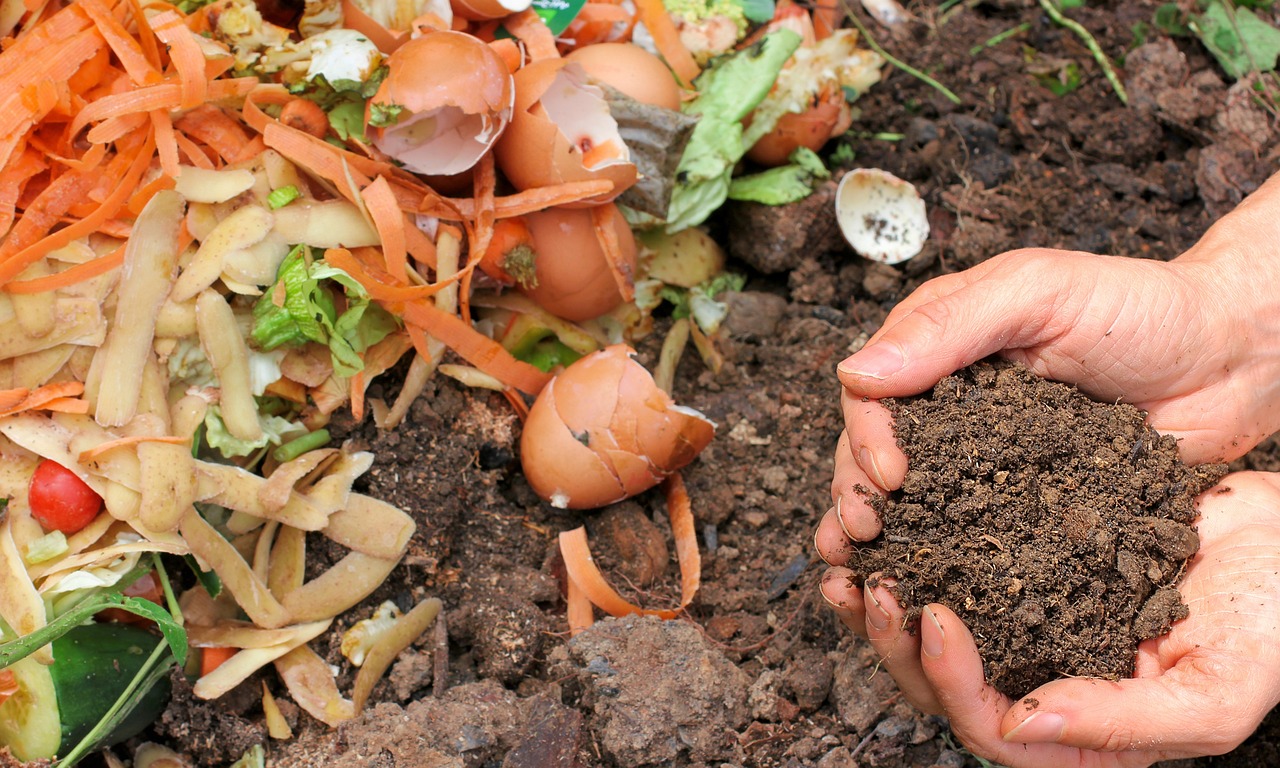Composting: How a Relic from our Past Could Become a Key to our Future
By: Davey Komisar
Chicago is often thought of as the de facto capital of the Midwest. Towering over the shores of Lake Michigan, the metropolis boasts a bustling restaurant scene, passionate sports fandoms, and a rich history of times gone by. Recently, the people of Chicago are seen as champions of environmental policy reform. [1] This week, to bolster the city’s composting levels, Chicago launched a citywide food drop-off initiative, marking the first of its kind in the city’s long history. [2]
What is Composting and why is it important?
Composting is the natural process of breaking down organic material into its basic elements. [3] The desired product, called “compost,” then becomes an important agricultural commodity used to stimulate crop growth and promote healthy soil. [4] Humans first practiced composting as far back as 3,000 B.C. in Egypt. [5] The Egyptians spread animal manure across their fields to use as fertilizer and relied on rainwater to keep the piles from decomposing. [6] The Roman Empire shared the practice across Europe, and even William Shakespeare wrote of it in the early 17th century. [7] Scientists estimate that composted matter accounted for 90% of all the fertilizer used in the United States by 1900. [8] So what changed in the past 100 years that made composting an afterthought in the agricultural industry?
In 1913, German engineers introduced synthetic nitrogen compounds into the fertilizer industry. [9] They were cheaper, cleaner, and more appealing, so by 1950, roughly only 1% of all fertilizers were produced from compost. [10] Nitrogen based fertilizers have certainly revolutionized the farming industry, but it has not come without criticism. Plants absorb only a small portion of nitrogen when synthetic fertilizer is applied to soil. [11] This causes the excess nitrogen to runoff into nearby water sources and seep into groundwater. [12] Experts suggest that the nitrates that infiltrate the groundwater, eventually consumed by humans, can lead to various health ailments resulting in urinary and kidney disorders. [13]
What does any of this have to do with Chicago?
While Illinois ranks third among US States in total prime farmland acreage, farming is almost exclusively practiced outside of Chicago. [14] However, Chicago does operate numerous landfills within the city limits. [15] When organic waste is not composted or disposed of in a manner other than trash, it decomposes and degrades into noxious chemicals harmful to the environment. [16] While many landfills have adopted technology to capture these gases and convert them into energy, there are still concerns about the non-captured gas entering the atmosphere and its contribution to climate change. [17] Waste disposal becomes a larger threat to climate change as the population of the Earth grows. [18] Mega-cities (cities with populations larger than 10 million) generate huge amounts of waste, and in 2008, New York City alone generated 12.1 million tons of waste each day. [19]
The food drop-site program in Chicago is a pilot program that hopes to expand in the coming years should it succeed with the 15 active sites across the city currently. [20] Mayor Brandon Johnson claims the goal of this program is to reduce the amount of organic decomposition in landfills to create healthier communities by reducing greenhouse gases. [21] However, this is not the only benefit to expanding composting capabilities in a large city. Compost is a lucrative commodity. It can be sold to various types of commercial ventures such as nurseries, landscaping entities, municipalities, and of course farmers. [22] Alongside the environmental gains, there are social and economic benefits to an uptick in compost activism in cities of all sizes. [23]
What can you do to help?
The pilot program is optional to all Chicago residents. One way you can contribute is to begin separating your organic waste from your typical trash and recycling. You can then drop off your food waste at any of the food drop-off sites in the city. For more information, check out the City of Chicago’s page on Composing.
__________
[1] Gina Ramirez, Chicago’s Historic Environmental Justice HUD Settlement (Aug. 29, 2023), https://www.nrdc.org/bio/gina-ramirez/chicagos-historic-environmental-justice-hud-settlement.
[2] Todd Feurer, Chicago Opening Food Scrap Drop-Off Sites for Citywide Composting Program, (Oct. 17, 2023, 8:39 AM), https://www.cbsnews.com/chicago/news/chicago-citywide-composting-program-food-scrap-drop-off/
[3] George M. Fell, Composting, Env’t Encyc. 355 (4th ed. 2011) (discussing the basic elements of composting).
[4] Chris Cavette, Compost, How Products Are Made: An Illustrated Guide to Product Manufacturing 86 (Jacqueline L. Longe ed., 2000) (describing the history and uses of compost).
[5] Id.
[6] Id.
[7] Id.
[8] Id.
[9] Id.
[10] Id.
[11] Perry Romanowski, Fertilizer, How Products Are Made: An Illustrated Guide to Product Manufacturing 138, 142 (1998) (describing how modern-day fertilizers are made and their effects on the environment).
[12] Id.
[13] Id.
[14] Illinois Department of Agriculture, https://agr.illinois.gov/about/facts-about-illinois-agriculture.html#:~:text=About%2089%20percent%20of%20the,sound%20base%20for%20crop%20production. (last visited October 20, 2023).
[15] Landfill Locations Map, Illinois Env’t Prot. Agency, https://epa.illinois.gov/topics/waste-management/landfills/landfill-locations.html (last visited Oct. 27, 2023).
[16] Brian D. Hoyle, Waste Disposal, Climate Change: In Context, 893-895 (Brenda W. Lerner ed., 2008) (describing different methods of waste disposal).
[17] Id. at 895.
[18] Id.
[19] Id. at 893
[20] Feurer, supra note 2.
[21] Id.
[22] Fell, supra note 4, at 89.
[23] Faraz Farhidi, Kaveh Madani, & Rohan Crichton, How the US Economy and Environment Can Both Benefit From Composting Management, Environmental Health Insights 1, 4 (2022) (uses an environmental study to project future implications of composting), https://journals.sagepub.com/doi/epub/10.1177/11786302221128454.


